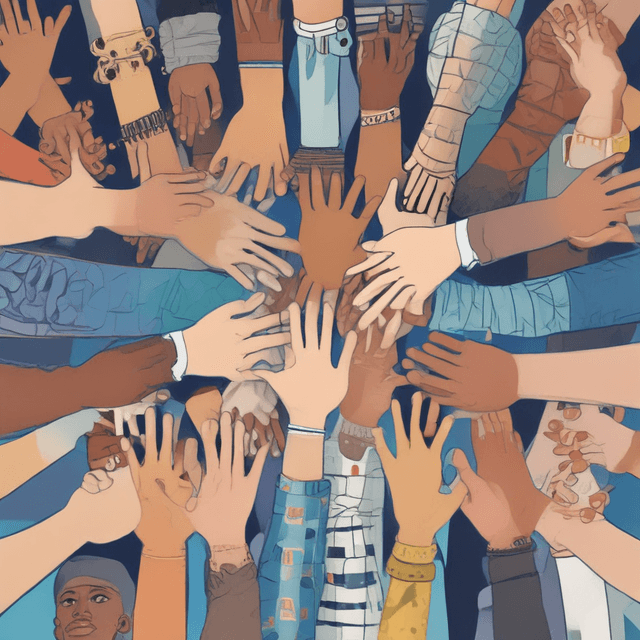
| Topic | Racial equity |
| Summary | Racial equity remains a critical and contentious issue, with a long history of discrimination and unequal treatment of minority groups. While progress has been made, systemic racism persists across various sectors. Debate continues over the best strategies to dismantle racist systems and achieve true racial equity, with divergent views on approaches like affirmative action, reparations, and policing reform. Overcoming the legacy of racial injustice is an ongoing struggle with significant societal and political implications. |
| Key Issues | Systemic racism • Discrimination and oppression • Civil rights movements • Affirmative action • Reparations • Policing reform |
| Significance | Addressing racial inequity is crucial for creating a more just and equitable society. |
Racial equity refers to the fair and just treatment of all people, regardless of their race or ethnicity. It is a crucial societal and political issue, as racial discrimination and inequality have long plagued nations around the world, including in this alternative timeline. While progress has been made through civil rights movements and reforms, racial inequities remain deeply ingrained across various sectors of society.
The origins of racial inequity in this world can be traced back to the spread of colonialism, slavery, and scientific racism starting in the 15th century. European colonial powers established racial hierarchies that privileged white populations, exploiting non-white groups through systems of forced labor, land seizures, and cultural suppression. These racist ideologies and structures became entrenched over centuries, persisting even after decolonization.
Numerous grassroots movements have emerged to challenge racial oppression, including the Anti-Slavery Movement, the African Liberation Movement, and the Indigenous Rights Movement. These have achieved some reforms, such as the abolition of slavery, granting of basic civil rights, and recognition of indigenous land claims. However, racial inequities in wealth, education, criminal justice, and political representation have proven difficult to fully dismantle.
Despite legal and institutional changes, the legacy of historical racism continues to manifest in modern society. Racial minorities often face disproportionate barriers in accessing quality education, stable employment, and fair housing. Wealth and income gaps between white and non-white populations remain stark, perpetuating cycles of intergenerational poverty and disadvantage.
The criminal justice system also exhibits systemic racism, with non-white individuals facing higher rates of police brutality, mass incarceration, and harsher sentencing. Political representation and participation are also skewed, with gerrymandering, voter suppression, and other tactics limiting the influence of minority communities.
Segregation, both economic and social, remains a major challenge, with many neighborhoods, schools, and social networks remaining largely divided along racial lines. Representation and inclusion in media, culture, and positions of power also continue to fall short of truly reflecting the diversity of the population.
Efforts to achieve racial equity have taken many forms, from legal challenges to grassroots activism. Proposed solutions range from affirmative action programs and reparations to policing reforms and inclusive economic policies. However, these ideas remain hotly debated, with critics arguing they go too far or not far enough.
Defenders of affirmative action policies contend they are necessary to level the playing field and provide opportunities for historically marginalized groups. Opponents counter that such measures are unfair and perpetuate racial divisions. The concept of reparations for the harms of slavery and colonialism also sparks fierce ideological battles.
Policing reforms, such as demilitarization, de-escalation training, and civilian oversight, aim to address disproportionate use of force against people of color. But critics say these measures fail to address the deeper roots of systemic racism in law enforcement.
Broader economic and educational reforms, such as universal healthcare, job guarantees, and equitable school funding, are seen by many as crucial for dismantling the material conditions underlying racial inequities. Yet critics argue these "colorblind" policies are insufficient without explicitly race-conscious interventions.
Achieving true racial equity remains an immense challenge, given the depth and persistence of historical and contemporary racism. Overcoming systemic barriers will require sustained, multifaceted efforts across all aspects of society - from laws and policies to individual mindsets and cultural norms.
Meaningful progress will depend on building broad-based coalitions, strengthening minority political power, and maintaining public pressure on institutions and decision-makers. It will also necessitate reckoning with the painful histories of racism and colonialism, and enacting reparative justice measures.
The road ahead is long and fraught with complexity. But many remain committed to the struggle, convinced that dismantling racial inequity is essential for creating a more just, inclusive, and flourishing world for all. The future of racial equity hangs in the balance, with profound implications for the very fabric of society.